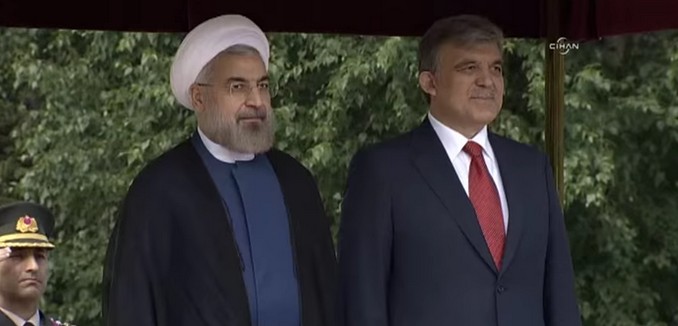An op-ed published yesterday in the Saudi owned, London-based newspaper Asharq al-Awsat argued that the Middle East conflict once known as the “Arab-Israel” conflict has shifted so much that it needs to be recast as one between Israel along with moderate Arab regimes, on the one hand, and extremist regimes, terror groups and their backers, on the other. The “current conflict looks like an Israel/Hamas–Turkey–Iran–Qatar one, with the rest of the Arab world’s support existing only on Twitter and other social media forums.”
Mamoun Fandy, a senior fellow at the Baker Institute, observes:
The conflict in now regionalized at the geopolitical level, with Iran and Turkey directly involved through their backing Hezbollah and Hamas respectively. The conflict has also become religious in nature rather than ethnic, especially after the Israeli government insisted on the Jewish identity of their state. The conflict has also become more sectarian on the Arab side due to the new rift within Islam between Shi’ite and Sunni Muslims.
The involvement of moderate Sunni Arab states is one of nothing more than providing a forum for negotiation between Israel and the Palestinians in Cairo, or in the case of the Gulf states, providing aid for reconstructing Gaza or southern Lebanon.
Fandy sees the current dynamic as possibly providing an opportunity for a peace deal between Israel and much of the Arab world.
Last week, Jonathan Schanzer of the Foundation for Defense of Democracies identified how Qatar and Turkey’s behavior alienated Israel, the Palestinians and much of the Arab world.
Others in the Arab world, particularly the traditional monarchies that seek to counter the destabilizing influence of the Muslim Brotherhood, are equally furious about the role Qatar and Turkey are playing in the cease-fire negotiations. As Newsweek reported, “Officials from … Saudi Arabia and Jordan, to name a few interested parties, watched with astonishment over the weekend as Kerry engaged in Paris with … the foreign ministers of Qatar and Turkey.” Israel’s left-leaning Haaretz also noted that the elevation of Qatar and Turkey constituted a “slap on the face” to these regional powers.
Egypt was also irked. The government of President Abdel Fattah al-Sisi overthrew the Turkey- and Qatar-backed Muslim Brotherhood President Mohammed Morsi last year. The new regime sees Hamas, which was formed as a splinter of the Brotherhood in 1987, as an extension of their ideological foe. The Sisi government was apparently so angry at the inclusion of Qatar and Turkey in the Paris talks that it refused to send its foreign minister, Sameh Shukri. Shukri recently accused Turkey and Qatar of attempting to “thwart” Egypt’s efforts to broker an end to the conflict.
With the Middle East roiled by the aggressiveness of radical Sunni Islamists such as Hamas and ISIS, and the growing projection of Shi’ite Iran’s military power, the Gulf states, led by Saudi Arabia, are finding themselves sharing interests with Israel. How close the tacit cooperation with Israel gets will likely be the result of how great a threat to their stability the moderate Arab states feel.
[Photo: AFP news agency / YouTube ]




